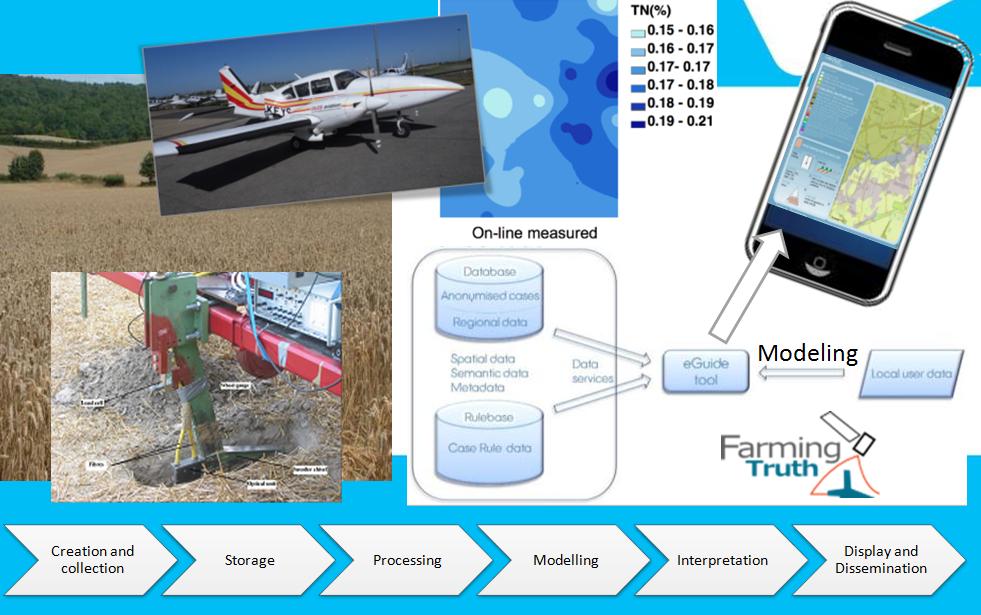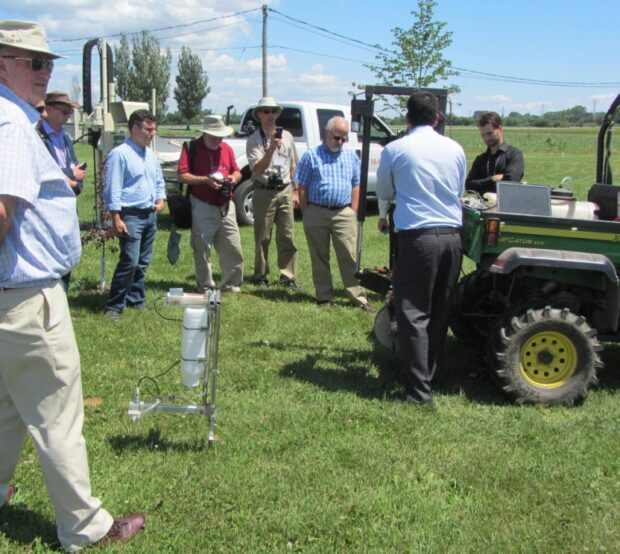The farming landscape is changing significantly, and entering a new era of technological change to meet population growth, climate change, changing diets, and competition for resources. Smartphone applications can help farmers better manage chemical input, watering, and machinery. Unmanned aerial vehicles can control crop picking. Geospatial technologies are currently available to help farmers monitor and increase production. Precision farming takes developments in engineering and associated technological innovations and opens up new dimensions of support and intervention, not only in the established disciplines of arable and livestock farming, but also in the emergent areas of urban and integrated farming.
In practice, precision farming changes the way a farmer works:
- Crops are not only harvested, but also mapped using a combination of sensors, digital photography techniques, and geospatial technologies
- Soil sensing systems provide information on the variability in soil productivity status
- Crop sensing technology provides information about canopy characteristics
- Fertilizers/chemicals are allocated more strategically/efficiently by exploiting spatial variations in soil fertility levels according to local demand
- Agrochemicals can be sprayed specifically on the crop when they are needed
- New techniques, such as variable rate technologies including sprayers, spreaders, sensors, controllers, electromagnetic induction methods, geospatial technologies, ultrasonic sensor systems, and remote sensing can be used

In July 2014 the Science and Innovation Network in Montreal teamed up with McGill University and Harper Adams University to organise the first UK-Canada workshop in precision agriculture in Montreal. The event brought together Canadian farmers, companies and experts with UK specialists from Harper Adams University, Cranfield University, a UKTI precision agriculture specialist, UK Precision Farming (division of division of Frontier Agriculture Ltd.), Soil Essentials, Silsoe solutions, Advance Technology Solutions (ATS-AGCO), the Agriculture & Horticulture Development Board (AHDB), McGill University, Practical Precision, Spray Applications, and invited guests from New Zealand (Massey University), Australia (University of Southern Queensland), the US Department of Agriculture, the University of Florida, and Slovakia.

The main topics of discussion were nitrogen input, limiting factors, soil and water, environmental issues and agricultural automation. By working together, these world leaders in precision agriculture will increase the scope of their individual research and look forward to new advances in a wide range of themes including soil sensing, chemical inputs and environmental challenges. It was also discussed that providing the opportunity for regular graduate student and young professional exchanges will help create a new generation of exceptional multidisciplinary agronomists.
Professor Viacheslav Adamchuk from McGill University said “our goal is to build the equivalent of a Mars rover designed for Earth, for land – a sort of a Swiss-army knife of a system, that uses different precision tools for different measurements, could be used by farmers and other managers of natural systems to obtain a sophisticated view of every aspect of a specific patch of our planet”.
A second workshop to be held in the UK in early 2016 is planned to further develop cooperation, identify the key issues and build strong collaborative scientific, practical and business relationships between Canada and the UK. Please stay tuned for further details about the UK-Canada collaboration in precise agriculture.
The Science and Innovation Network (SIN) is jointly funded by the Department of Business, Innovation and Skills and the Foreign and Commonwealth Office. The SIN Network create important relationships to best use the value of science and innovation discoveries and investments overseas. Click here to find out more about the SIN Network.

Recent Comments